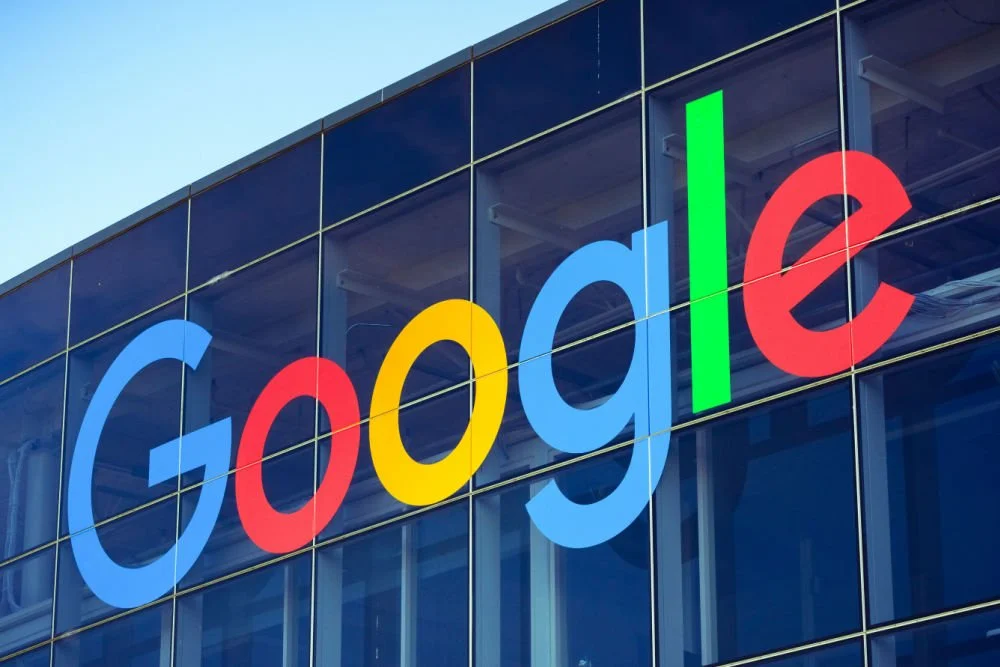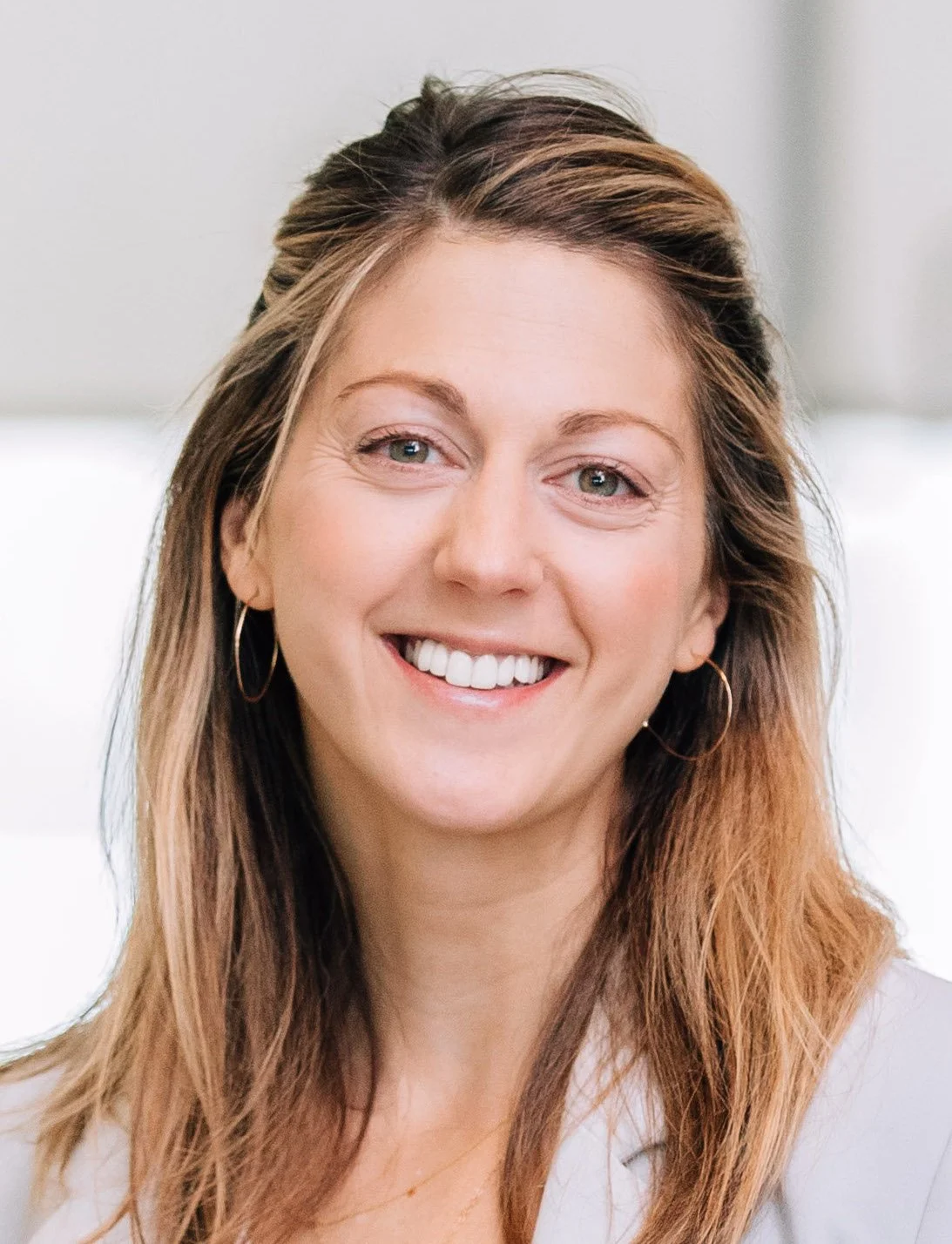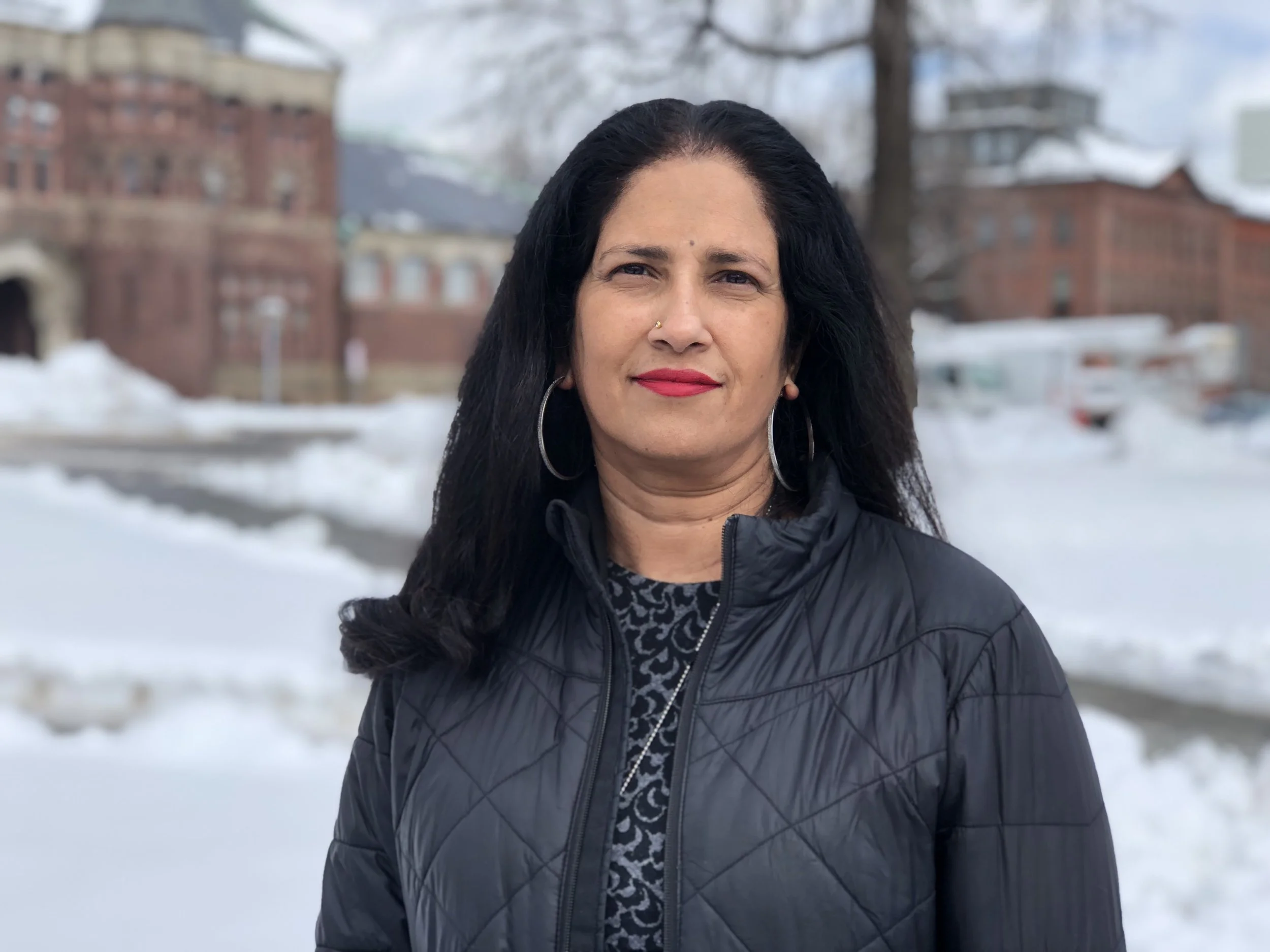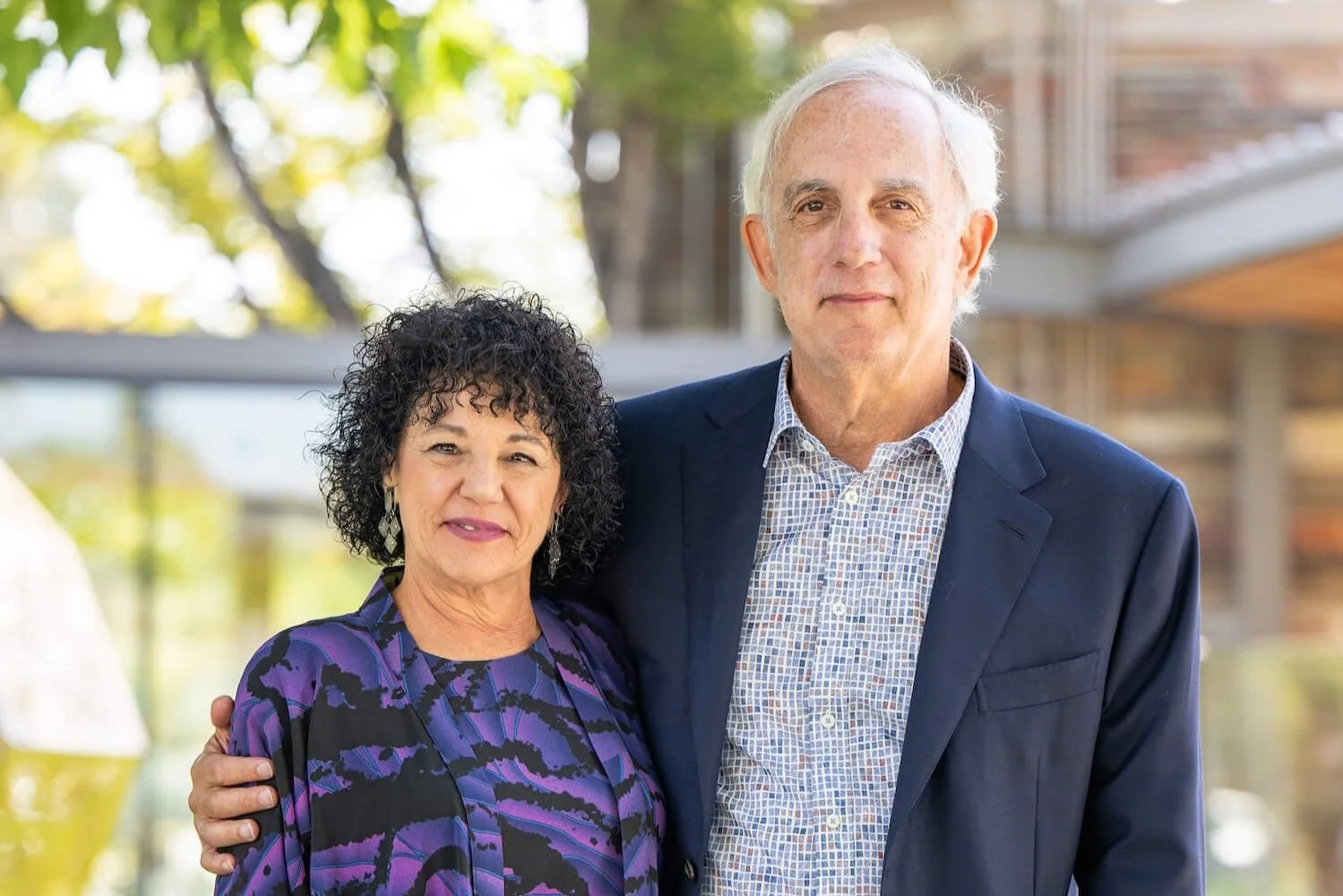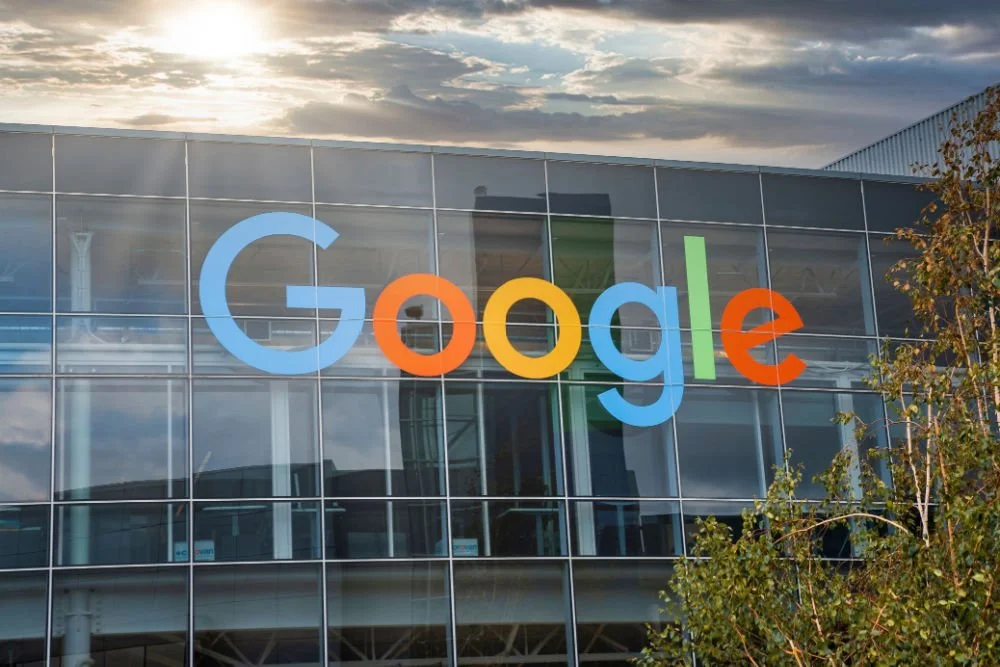From Normal to Fearless: Jean Case Explores Courage in Business and Philanthropy
/What does it mean to be fearless in today’s world? And more particularly, what does it mean to be fearless in philanthropy? After two decades of heading up the Case Foundation, Jean Case has some pretty specific ideas on both of these topics. These ideas are explored in depth in Case's first book, Be Fearless: Five Principles for a Life of Breakthroughs and Purpose, which was published today.
Case begins this storytelling book with her own story, describing difficulties in childhood that informed her outlook on life, helping her recognize personal courage as a key attribute to success. One of four children, Case was raised by a single mother after her parents divorced. Her mother worked full-time nights as a waitress, and, with support from her German immigrant parents who ran a small hotel in Normal, Illinois, provided an example of how to be both a caregiver and a breadwinner. For Case, this less-than-perfect upbringing had more perks than pitfalls. Case describes, for example, often sitting at the reception desk of the hotel with her grandmother, since the family noticed that people were more likely to buy condiments and other items for sale if she was sitting out front.
Coming from humble means, Case likes to highlight other leaders who share an early life of scarcity, yet have reached powerful positions of leadership, often addressing the social problems that once shaped their lives. For Case, one of those leaders is Darren Walker, president of the Ford Foundation, and a leading advocate for social justice movements. In her book, Case expresses her appreciation for Walker's leadership, particularly his background as a gay black man who grew up in the rural South.
"There's an exciting story to be told about the new face of philanthropy," Case said in a recent phone interview. "I think Darren Walker at the Ford Foundation is a great example of this, coming from challenging circumstances himself." Case described Walker as one of a "new generation of fearless leaders who are willing to take on hard challenges," like inequality and racism.
In this group of fearless new leaders, Case also recognized Wes Moore, CEO at the Robin Hood Foundation, and Rajiv Shah, the president of the Rockefeller Foundation. Case sees this new cohort of philanthropy leaders taking a more strategic approach to impacting social justice issues. Of Rajiv Shah, Case observed that Shah was "a fearless leader at USAID before he went to Rockefeller."
To Case, these leaders signal the potential for philanthropy to move beyond its marginal position in society. "I have great hope for both the impact and the potential for transformation in philanthropy, more, perhaps, than I've ever felt, because of the willingness to face big challenges, take risks, and understanding that failure may happen along the way and you need to learn from it and move on."
Case discussed one of the bold ideas profiled in her book, Swipe Out Hunger, a platform that pools college dining cards and gives points to those in need. I agreed with Case that the success of this platform had a fascinating story, but I wondered whether Swipe Out Hunger was really getting at the root of the problem. Wouldn't it be better, for example, to create a solution that would make college more affordable for families?
Case agreed, and suggested that fearless philanthropy has a particular role to play in modeling solutions for larger systems. "At the Giving Pledge, we talk about how philanthropy should be the first risk capital. We should take risks with capital that government or for-profit entities can't." Philanthropies can go in early and experiment with potential solutions, Case said, and then government can come in and work with those successes and build on them.
As an example, Case referenced Barbara Pierce Bush as a nonprofit innovator helping to build better systems solutions in global health. Through the co-founding of Global Health Corps in 2008, the young Barbara Bush has helped to build the pipeline of global health leaders, particularly women, who can impact health systems in both U.S. and parts of Africa.
I wondered about a moment described in Case's book when a mentor took her aside in high school and told her sternly that she needed to make time for important assignments and responsibilities. An important lesson, for sure, but I wondered if it applied to everyone—even, for example, a single parent working two jobs to make ends meet. Should that person also be expected to put aside time to explore bold ideas and fearlessly pursue time-consuming projects?
"I really think the concept, or the discipline, if you will, applies to everyone," said Case. "In my own life, like everyone else, I struggle with this, but if it's not on your list of what matters today, it's just hard to progress."
She emphasized again the importance of identifying what is really important and then making time for that activity. "My own mom was a single mother who worked full-time, and she didn't have a lot of extra time, but I think she was a great model of someone who made time for the things that mattered most."
Case related the discussion on time management to one of the principles discussed in detail in Be Fearless: letting urgency conquer fear. "Where people feel an urgent need for something to change, that can become the motivator to actually do something different. We see this time and again when transformation has taken place."
An equally important concept that Case explores in the book is that of the "minimum viable product"—that is, figuring out how to use the least amount of time and effort in order to establish the viability of a product, service or idea. Case emphasized that this concept was at the heart of several of the stories told in the book, particularly the story Zappos, whose founders carefully investigated whether there was a market for people to order shoes online before they invested in the business.
"What is your idea, and how can you chunk it down to just try something before you have to quit your job or be 'all in,' or invest $10,000 or whatever it will take to develop your idea?" asked Case. So while big bets are important, not over-investing in an untested idea is also key if your fearlessness is going to be sustainable.
After a succession of leadership positions in public and private sector jobs, Jean Case set out with her husband, AOL founder Steve Case, to establish the Case Foundation over two decades ago. From the beginning, the couple envisioned creating an unusual organization, seeing the role of their foundation as a "vibrant laboratory for change."
A central premise of their approach to philanthropy is that those who continuously explore and experiment are the most successful entrepreneurs. This may seem like an obvious point, but as the book sets out examples of the change makers, it identifies five traits that all of these changemakers had in common: "They weren’t wealth, privilege, or even genius. It was that these exceptional men and women made a big bet, took risks, learned from their failures, collaborated with people with diverse experiences, and let urgency conquer fear."
Another part of our culture where Case sees growing fearlessness is in women's influence on money, both in philanthropy and in the private sector. "It goes way beyond philanthropy and into investing," said Case.
Case sees a different culture being fostered both in business and philanthropy, in which "women care very deeply about supporting other women," and are willing to back each other's work with financial as well as other forms of support. "Our work [at the Case Foundation] in the inclusive entrepreneurship realm is all about that."
But she was clear that the gender gap still needs to be remedied in order to achieve the diversity needed for a healthier economy. "We need all the players on the field, and today, we don't have them."
"Women and millennials are looking at social justice issues and seeing how we can do things differently," said Case. In the business sector, she recognized that corporations are paying more attention than ever to the Sustainable Development Goals and the need for gender equality to be part of the equation for a healthy global economy.
Case also wanted to point out that buying the book is an act of supporting entrepreneurship and fearlessness. "All proceeds from the book go to the Case Foundation, to invest in people and ideas that are changing the world," said Case.
As signatories of the Giving Pledge, Jean and Steve Case have committed to giving away the majority of their assets to worthy causes within their lifetimes. The couple has an estimated net worth of $1.5 billion, and I asked about their plans to fulfill that daunting challenge. In 2016, the Case Foundation made annual grants of roughly $906,000.
Regarding their commitment to the Giving Pledge and a request to know more details about their plans, the Case Foundation referred us to their statement about making the pledge. "We do not believe our assets are 'ours,' but rather, we try to be the responsible stewards of these resources," say the Cases in their statement. "We recognize we have an obligation to reinvest them in a positive, constructive and flexible manner."
While Jean Case has already been deeply involved in philanthropy for over two decades, it seems likely that far greater giving lies ahead as the couple makes good on their pledge.






















